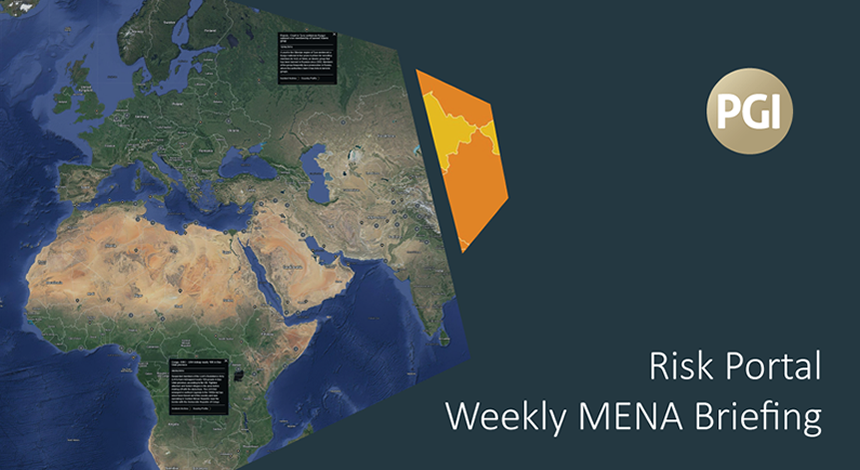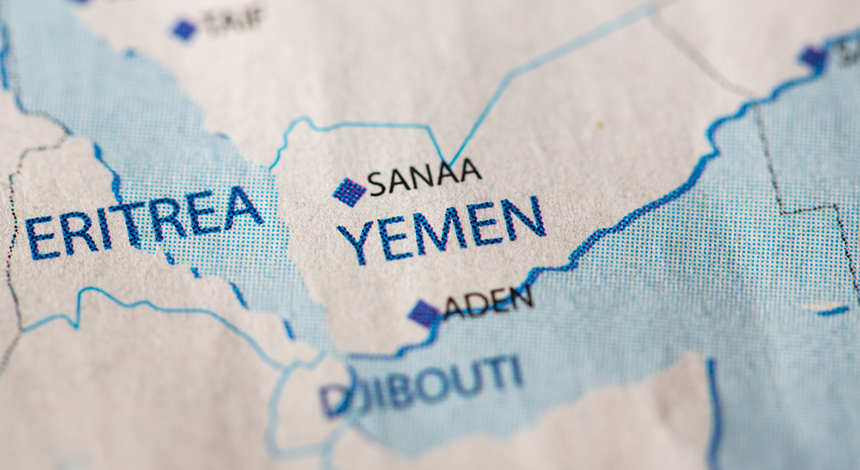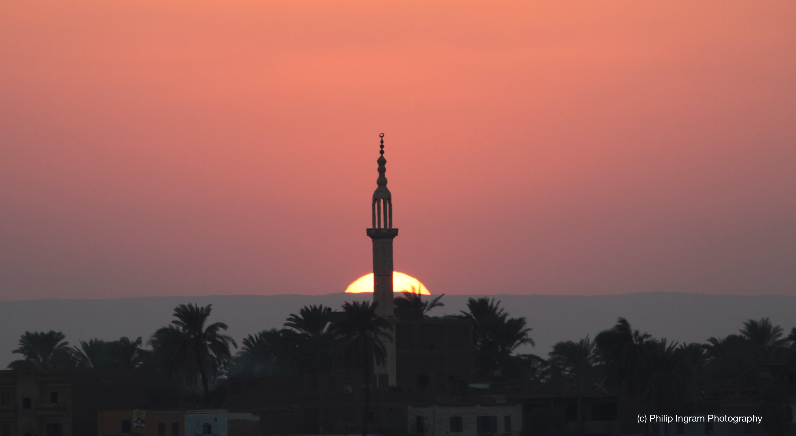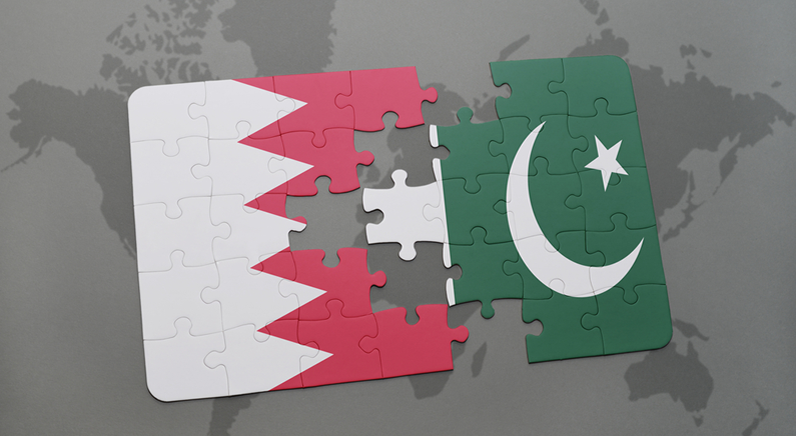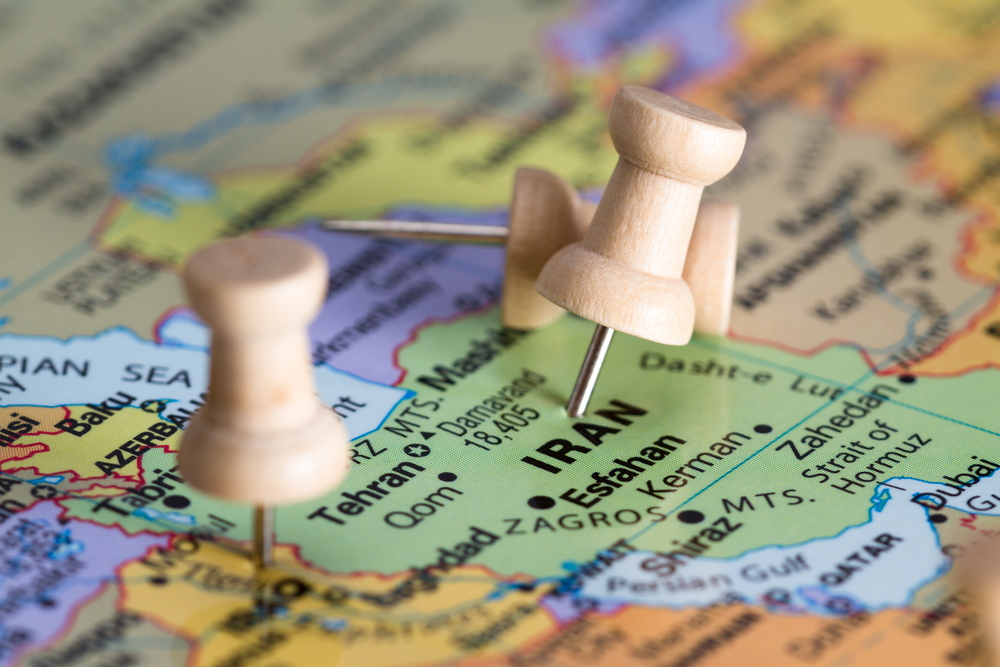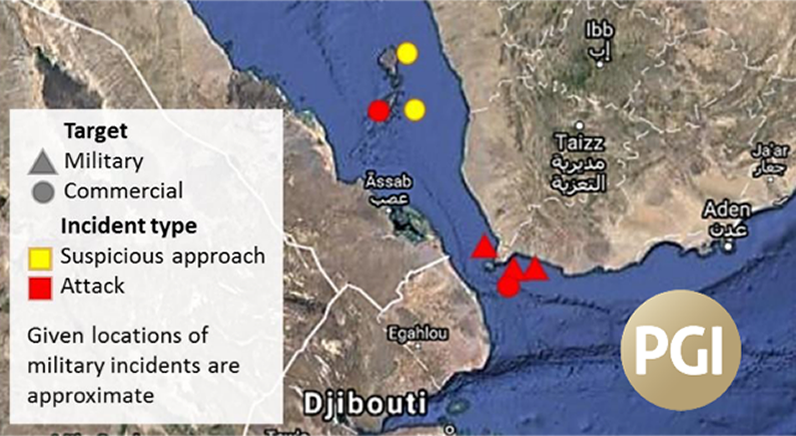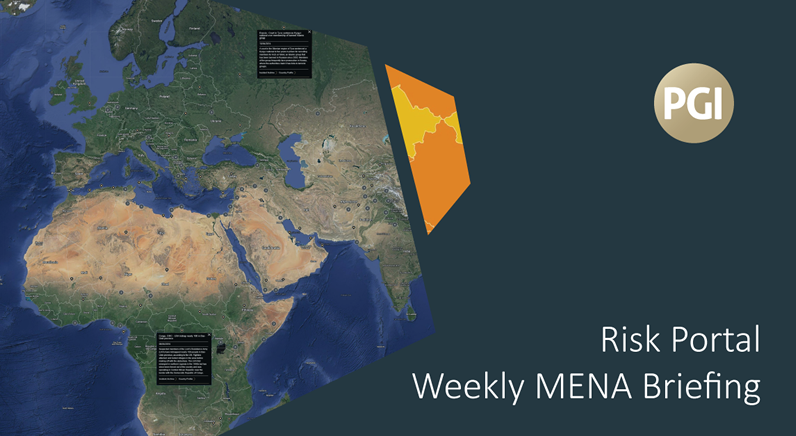The Islamic State militant group continues to be an active threat states PGI
 The Islamic State militant group continues to present an active threat amid ongoing offensives against the group in Syria, Iraq and Libya with a failed offensive on the Syrian government-held town of Palmyra and a counter attack in Mosul which forced the withdrawal Iraqi troops.
The Islamic State militant group continues to present an active threat amid ongoing offensives against the group in Syria, Iraq and Libya with a failed offensive on the Syrian government-held town of Palmyra and a counter attack in Mosul which forced the withdrawal Iraqi troops.
In Libya, Bunyan Marsous militia forces claimed to clear Islamic State militants from Sirte, despite continuing claims by the group that it carried out operations in the town. There were also arrests of suspected IS supporters in Morocco and Tunisia.
In Egypt, six police officers died in an attack in Cairo on 9 December, highlighting a continued threat posed by anti-government militants outside of the North Sinai.
PGI’s Weekly Middle East and North Africa (MENA) Briefing provides an overview of key developments from across the region in the past seven days.

Algeria
Rail drivers strike in Algiers – 6 December
Train drivers observed a one-day strike in Algiers. The unannounced action caused widespread transport disruption in the capital. The motive behind the strike was unclear, but in recent protests, drivers have called for changes to overtime calculations and other conditions of their employment.
Army seizes arms cache in Adrar – 5 December
Defence officials said that army units seized a weapons cache in Adrar, comprising 20 machine rifles and ammunition. Weapons seizures are common in central and southern areas of Algeria, where trafficking groups take advantage of long, porous borders.

Egypt
Cairo blast kills at least six – 9 December
State media reported at least six police officers were killed and three others were wounded when a bomb hidden in a rubbish bin detonated at a security checkpoint in Cairo. Four civilians were also wounded in the blast in al Haram, which leads towards the Pyramids. There was no immediate claim of responsibility but both domestic and transnational Islamist militant groups regularly perpetrate attacks in Egypt.
Security forces kill three suspected militants in Assiut – 7 December
The interior ministry said that security forces raided a building in Assiut, killing three suspected members of the Hasm Movement militant group. The government has linked the militant group to the banned Muslim Brotherhood. The group has claimed a series of recent attacks against government and judicial targets, including an unsuccessful car bomb attack against a senior prosecutor in Cairo on 29 September.
Thousands of workers protest in Suez – 5 December
Security forces broke up a sit-in protest in Ain al-Sokhna involving around 1,000 workers at the Egyptian Fertilizers Company and the Egyptian Basic Industries Corporation. Both firms are owned by billionaire Nassif Sawiris. Press reports said tens of protesting workers were briefly detained by authorities, though all but two were released. The demonstrations began 15 days prior, with the employees calling for higher wages and protesting cuts to their bonuses.
Cairo raises tariffs on imports – 4 December
The finance ministry announced the government had increased tariffs on some imported goods by up to 60 percent in a bid to reduce imports. The goods subject to higher tariffs includes electronic devices, fridges, soaps, cosmetics, shoes, chocolate, and fruit. The new tariff system, expected to increase revenues by USD 337 mn and lower the USD 49 bn trade deficit, will also affect local manufacturers who require imported goods.

Iran
President proposes budget rise – 4 December
Iranian President Hassan Rouhani proposed a state budget of about USD 100 bn for next year, to support economic growth as Donald Trump’s election in the US threatens to put renewed pressure on Tehran. Rouhani announced a draft budget for the Iranian year that will start on 21 March of USD 99.7 bn, up 9 percent from the plan for the current year. Trump said during his campaign that he would scrap last year’s nuclear agreement between Iran and world powers, in what would be a big blow to the Iranian economy just as it emerges from years of sanctions.

Iraq
Army retreats after IS counter-attack on Mosul hospital – 8 December
Iraqi troops based inside a Mosul hospital, formerly used by the Islamic State (IS) as a military base, were forced to retreat after the group launched a fierce counter-attack. Iraqi soldiers, who captured the hospital on 6 December, were forced to retreat after they were hit by six suicide car bombs and “heavy enemy fire”, according to a US-led coalition spokesperson. Local reports suggest that IS has been using a complex network of underground tunnels to resist the advancing coalition forces.
Islamic State militants launch counter-attack in Mosul – 7 December
Iraqi military officials said that Islamic State fighters had launched a surprise attack on security forces in Mosul over the night of 6-7 December. One military officer said the assault had inflicted heavy losses but provided no further details. The attack came hours after Iraq’s Ninth Armoured Division made a significant push from the southeast, advancing deep into the city and the Palestine district after having been bogged down in fighting on Mosul’s outskirts for weeks.
Heavy clashes break out east of Mosul – 6 December
Iraqi security forces engaged in intense fighting with Islamic State militants east of Mosul. Backed by US-artillery and helicopter gunships, Iraqi troops sought to make gains against militants who used suicide bombings to impede their advance. Clashes were ongoing in al-Shaimaa, al-Salam, Doumiz, Qadisiya and al-Barid districts.
Exxon withdraws from Kurdistan blocks – 5 December
Local media reported US energy giant ExxonMobil had pulled out of three of the six exploration blocks it operates in Iraqi Kurdistan. The reason for Exxon’s withdrawal from the Qara Hanjeer, Arbat East, and Betwata blocks was unclear, but since 2014, international oil companies have relinquished 19 blocks in semi-autonomous Kurdistan according to the Iraq Oil Report. Payment challenges, relations with Baghdad and sabotage of export pipelines in Turkey are among the challenges facing investors in the local oil sector.

Israel
Parliament votes in favour of settlement legalisation bill – 7 December
The Knesset voted in favour of a bill legalising around 4,000 settler homes built on Palestinian land in the West Bank. The draft bill, which will be read two more times, was voted by 57 to 51 members. Moves to legalise settlements considered illegal by the UN are often condemned by the international community as barriers to a peace agreement and can trigger unrest in the West Bank.
Clashes between Hamas, Islamist militants leave two injured in Gaza – 6 December
Medical sources said that clashes between Hamas and Islamist militants left a police officer and a member of Hamas injured in al-Fukhari in the southern Gaza Strip amid an arrest attempt. Hamas, which is responsible for security in Gaza, occasionally clashes with other armed groups in the enclave.

Libya
Gunmen seize Ben Jawad – 7 December
Local militia forces loyal to Libya’s eastern government said armed groups had seized the town of Ben Jawad, which lies 30 km west of the oil port of Es Sider. Officials said the assailants were linked to the Benghazi Defence Brigades, an Islamist armed group comprising fighters pushed from Benghazi by forces loyal to eastern military commander Khalifa Haftar. There were reports of heavy clashes and air strikes in and around Ben Jawad, and the fighting prompted the evacuation of some oil workers at Es Sider, which is offline due to damage sustained in earlier fighting.
Militia forces clear Islamic State from Sirte – 6 December
Pro-unity government forces cleared Islamic State (IS) militants from their remaining holdouts in Sirte’s Ghiza Bahriya district after several hours of clashes. Impromptu celebrations erupted in Sirte after several surviving fighters surrendered, ending a nearly seven-month battle between Misratan led brigades and militants for control of the coastal city seized by IS In 2015. More than 700 militiamen have been killed and more than 3,200 wounded in the offensive, which was backed by US air strikes and Western special forces.
IS claims two attacks in Sirte – 5 December
The Islamic State-linked Amaq Agency said that Islamic State (IS) militants killed and wounded at least 19 militia fighters during two attacks in Sirte. Forces led by militias from Misrata fighting the group in Sirte did not confirm the attacks. Militia forces have repeatedly advanced against the group, capturing large areas of territory since May.

Morocco
Authorities arrest two suspected IS supporters in Casablanca – 5 December
The interior ministry said that authorities arrested two suspected supporters of the Islamic State (IS) militant group in Casablanca. Officials said that the suspects had attempted to obtain an explosive belt to carry out an attack against an unnamed target in Morocco. Security forces frequently arrest alleged IS supporters and Islamist militants, often planning attacks against government targets.
Rabat, Abuja sign gas pipeline deal – 3 December
Nigeria and Morocco have signed a joint venture to construct a gas pipeline that will connect the two countries as well as several other West African countries to Europe. The project aims to create a competitive regional electricity market with the potential to be connected to the European energy markets. No timeline was provided for when the pipeline construction work will start or how much it will cost.

Oman
Three gunmen rob bank in Barka – 7 December
According to the Times of Oman, police said that three armed men robbed a Bank Muscat branch in the al-Rumais area of Barka at around 0800 hrs local time. Police began an operation to locate the individuals involved. Violent crime is rare in Oman compared to the rest of the region.

Saudi Arabia
Court sentences 15 to death over Iran espionage – 6 December
The Riyadh criminal court sentenced 15 defendants to death and several others to prison terms in a case over an alleged Iranian spy cell. In February, 30 Saudis, one Iranian and one Afghan national were charged with establishing an espionage ring and providing sensitive information on the Saudi military to Iran. The defendants were also charged with planning acts of sabotage.

Syria
IS offensive in north Palmyra fails – 8 December
Islamic State (IS) launched a large scale offensive against Syrian Arab Army (SAA) positions near the desert village of Huwaysis and the Jazal Mountains, north of Palmyra, Homs province. IS began the attack in early morning by sending two waves of fighters against SAA positions. Clashes that ensued lasted until the afternoon. IS claimed to have captured three SAA positions, alongside a number of armoured vehicles. However, the offensive was eventually repelled by the regime forces, backed by fighter jets. The military claimed that it killed over 60 IS militants, and destroyed eight armoured vehicles that belonged to IS.
Rebels withdraw from Aleppo’s Old City – 7 December
The Syrian Observatory for Human Rights said that opposition forces had pulled out of Aleppo’s Old City, which has been under rebel control for four years. Syrian state media said pro-regime forces had taken the Aghiur and Bab al-Hadid, while there were reports of heavy fighting and shelling in the rebel-held southeast. A military offensive launched in November has seen pro-government forces capture around 75 percent of opposition-controlled eastern Aleppo.
Car bomb kills Turkish soldier in al-Bab – 7 December
One Turkish soldier was killed and another six were wounded in a car bomb attack in al-Bab, Aleppo province. The causalities were the latest suffered by Turkish forces in an ongoing operation against the Islamic State (IS)-controlled city in northern Syria. Turkish forces said their warplanes had killed 23 IS militants and destroyed 12 IS targets in the area.

Tunisia
Security forces dismantle militant cell in Tunis – 7 December
National Guard units dismantled a militant cell in the Ettadhamen City area of Tunis, comprising seven individuals. Officials said that those arrested confessed to pleding allegiance to the Islamic State militant group and admitted having contacts in Syria. There was no immediate indication that those arrested were planning to attack targets in Tunisia. Arrests of suspected militant supporters are common in Tunisia, which is one of the highest per capita sources of foreign fighters in Syria, Iraq and Libya.
Thousands of lawyers protest in Tunis – 6 December
Several thousand lawyers demonstrated outside the prime minister’s office in Tunis to protest new taxes on their profession. The measures form part of a controversial new budget that has sparked strikes and protests in the public and private sectors. The protest by lawyers comes after they began an indefinite strike on 5 December.

United Arab Emirates
Fog disrupts traffic, flights – 5 December
Thick fog caused disruption across the UAE, including at Dubai International Airport where flights were delayed by several hours or cancelled. Heavy traffic due to the fog was reported on a number of roadways, resulting in slow moving traffic and collisions. Officials warned visibility was less than 100 m on Mohammad Bin Zayed Road, Umm Al Quwain and Ras Al Khaimah. The fog is expected to persist over the next two days.

Yemen
Clashes kill tens of Houthis in Jazan – 7 December
Saudi security forces claimed to have killed at least 30 Houthi infiltrators near the Harath area in Jazan in clashes over the night of 7-8 December. The rebels were found trying to infiltrate a checkpoint and were repelled. Saudi artillery and Apache helicopters also targeted Houthi infiltrators on the Meedi front in the Hijjah region, destroying a large amount of military equipment.
Security forces arrest eight militants in Aden – 6 December
Local authorities, working in coordination with Saudi-led coalition forces, arrested eight members of an Islamic State cell in Aden. The suspects reportedly confessed to involvement in the assassination of security forces in Aden. Weapons, including pistols and silencers, were seized from the suspects.
AQAP claims IED attacks in Ibb – 6 December
Militants from the al-Qaeda in the Arabian Peninsula (AQAP) claimed two IED attacks on pro-Houthi forces in western Ibb province. An IED planted in a motorcycle targeted a Houthi-appointed military officer as he travelled to his office in al-Nadira, though it was unclear if the intended target was wounded in the attack. A second blast occurred in Damat district.
Houthi gunmen kill three Total guards in Sana’a – 5 December
Yemeni media reported Houthi gunmen killed three civilians working as guards for French oil giant Total in Sana’a. Houthi forces stormed a company office and took tens of electrical generators following the shooting. The gunmen reportedly fired on the security workers as they held a sit-in protest outside the office over unpaid wages.

To receive PGI’s daily briefing, containing a comprehensive update of developments in the region, register now for free Risk Portal access or follow us @PGIIntelligence
[su_button url=”https://riskportal.pgitl.com/register” target=”blank” background=”#B6A175″ color=”#ffffff” size=”10″ radius=”0″ icon=”icon: arrow-circle-right”]Click here to register for access to the free PGI Risk Portal[/su_button]


















